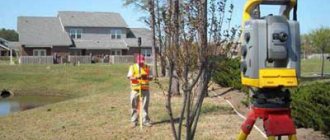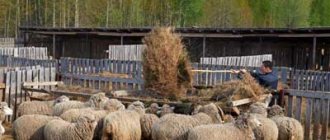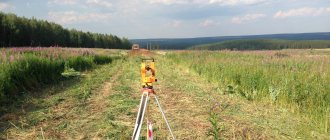When there is discord and irreparable disputes with a neighbor over the border of a land plot, it is impossible to calm it down without the intervention of a specialist.
And here, in the midst of a land battle, they remember law firms specializing in resolving land disputes, and our organization is one of these.
Why ask the question “How to resolve a dispute over the boundaries of a land plot?” when you can resolve the issue of establishing the boundaries of a land plot in a civilized way with the help of our Ekaterinburg land lawyer.
Types of disputes with a neighbor about the property boundary
In a situation where the boundaries of a land plot do not actually correspond to the boundaries determined after surveying or the boundaries indicated in the cadastral passport of the land plot, and one neighbor, for example, installed his fence on the plot of another intentionally or accidentally, but refuses to move the fence or some building , this is where a dispute arises, the result of which should be a court decision, for example, on the obligation of the violator to move his fence. Accordingly, after the fence is moved, the actual area of the land plot will change, which will correspond to the area according to the documents.
Situations may be different when a person has actually seized part of someone else's land plot, but the owner of the seized part of the land is ready to sell this part to the invader; of course there is no dispute here, but one must keep in mind that under certain conditions it is possible to change the boundaries by agreement of the parties.
The types of legal disputes regarding the border will depend on the circumstances; it is possible to file a lawsuit in court:
- claim for establishing (defining) boundaries (including if there is a dispute about the imposition of boundaries of land plots)
- claim to determine the procedure for using a land plot
- claim for recognition of ownership of a land plot or part thereof
- claim for failure to interfere with the use of land
- claim for reclaiming a land plot or part thereof from someone else's illegal possession
- The law office “Katsailidi and Partners” (Ekaterinburg) will help you draw up another statement of claim to restore your right to land
Donation (land donation agreement)
Donation is one of the most reliable ways of transferring property rights to a land plot. It is extremely difficult to challenge such a deal. A land donation agreement can be declared invalid and canceled only if there are compelling reasons. An experienced lawyer can do this, but it is unlikely that a person without the appropriate qualifications will succeed.
What documents are needed to challenge the donation of a land plot? It all depends on the situation. Let's look at the most common legal disputes.
Participants in shared ownership of a house located on a plot have equal rights to this land. However, when donating a plot, the co-owner often does not take into account the interests of other owners. In this case, documents confirming ownership of the house located on the disputed site will be required. For example, such documents could be a certificate of ownership or a current extract from the Unified State Register of Real Estate.
Some land plots are subject to restrictions on their disposal without connection with the buildings and structures located on it. A restriction is possible if both objects belong to the same person. When donating a plot of land, this prohibition may be violated. In this case, the court must provide documents confirming that there are other real estate objects on the site that cannot be separated from the land. In addition, you will need papers indicating that the buildings and land belong to the same person.
If the land plot is joint property of the spouses, any actions with the real estate must be agreed upon between the husband and wife. When making transactions, the written consent of the second spouse to dispose of the land is required. If there was no such consent or the appendices to the gift agreement are forged, the transaction can be challenged. Conducting a handwriting examination and attaching the conclusion to the case materials will help with this.
Donation refers to gratuitous transactions. But often, under the guise of a gift, other legal relationships can be hidden. For example, a loan or purchase and sale agreement is often covered in this way. This is done most often for the purpose of evading taxes, and therefore is not legal. For proof, it is necessary to provide the court with materials confirming the fact of the transfer of funds to the donor or the presence of reciprocal obligations on the part of the donee.
At the time of execution of the transaction, the donor must be fully capable. If for some reason he was not able to understand the meaning and consequences of his actions, the transaction cannot be recognized as valid. To confirm this fact, it will be necessary to conduct a comprehensive psychological and psychiatric examination with the addition of a corresponding conclusion to the case materials.
It is prohibited to take any legal actions in relation to seized real estate. If this rule is neglected and a gift is formalized, the transaction will be declared invalid. To cancel, you must provide a decree from the bailiff to seize the land plot.
The procedure for resolving disputes about the boundaries of land plots
So, how to act in a situation where it is necessary to actually bring the boundaries of a land plot into compliance with the documents, changing the location, for example, of a neighbor’s fence, eliminating the cadastral overlay, etc.:
- Check the availability of documents that define the boundaries of your land plot
- If necessary, contact a cadastral engineer , who will determine the coordinates of the points of the site boundaries, the presence of a cadastral error, the presence of overlapping land plots
- Carry out a peaceful settlement of the dispute with neighbors, it may be possible to conclude an agreement and redistribute the land without subsequent recourse to judicial protection
- File a claim in court if it was not possible to reach an agreement, for example, on the obligation of a neighbor to move a fence. ATTENTION: when making demands of this kind, you can also ask the court to establish a judicial penalty, the so-called astrent, in case of failure to comply with the court decision
- Take part in a court hearing , justifying your demands
- Having received a court decision in your favor and if the defendant does not comply voluntarily with it, obtain a writ of execution and submit it to the bailiffs. IMPORTANT: if by a court decision it is necessary to make changes in relation to boundaries, then a certified decision must be submitted to Rosreestr
- If the decision is not made in your favor, you should appeal it to a higher court.
ATTENTION: how to win legal disputes over land plots between neighbors and other persons - watch the video. Subscribe to the YouTube channel and free consultation on land issues in the comments of the video will be professional and on time.
What to consider in a legal dispute over land boundaries?
- The division of the territory cannot be decided on your own, because the neighbors will not take your arguments into account, and the court will consider claims only if the statement of claim is legally correctly drawn up.
- It is important to accurately qualify these disputes, since various regulatory grounds and procedural procedures for their consideration by a magistrate or district (city) court are provided for their resolution.
- If the error in determining the boundaries is technical, it becomes much easier to approve the boundaries of the land plot. In this situation, the owner needs to write an application to the cadastral service, which will correct the typo that has arisen (read the direction for the procedure for correcting cadastral errors). If a mistake was made during land surveying, then it will be mandatory for both owners of neighboring land to re-landmark.
Causes of land disputes.
Land legislation appeared relatively recently.
Constant changes and additions to regulations cause a lot of disputes, contradictions, and collisions. Therefore, resolving land disputes in court is a rather difficult task for the judiciary. Moreover, they are the ones that arise more often than others. There are several reasons for this:
- illegal actions of participants in land relations;
- ignorance of legal norms;
- changes in regulations that have caused problems.
Sometimes consideration of a land dispute in court is the only way to resolve a difficult situation. But if you wish, you can avoid this; competent legal assistance on land issues will help.
Disputes involving legal entities raise even more questions. Therefore, in this situation, it is better to seek advice from lawyers on land issues. They will do everything to ensure that the judicial resolution of land disputes is only in your favor.
Limitation periods for land boundary disputes
If there is a need to establish the boundaries of the site, then the statute of limitations for such disputes, i.e. when a person can apply to protect his rights in court is 3 years. How is such a period calculated? The countdown of the period begins from the moment the person learned that his rights were being violated.
And if a person missed the statute of limitations, then what? In this case, as a general rule, a person loses the opportunity to protect his rights in court, since the court will refuse to satisfy the claim due to the expiration of the statute of limitations. However, the court will apply the rule regarding the limitation period only if the other party so declares, i.e. defendant.
Also, do not forget that Article 202 of the Civil Code of the Russian Federation provides for cases when the statute of limitations is suspended, i.e. a certain period does not count towards the statute of limitations.
IMPORTANT : if the plaintiff, as the owner, makes a demand that the violation of his right be eliminated, then the statute of limitations does not apply to such demands. If the reasons for missing the deadline were valid, then the court may restore the statute of limitations - watch a video about this from our channel
Land survey disputes
Any land plot owned by a citizen must have strictly defined boundaries.
To do this, with the help of specialists, a boundary plan of the land plot is drawn up. Land demarcation will help in the future to avoid the seizure of your property, for example, by neighbors. But problems with neighbors can also begin at the stage of the border determination process itself. See also the article on clarifying the boundaries of the memory.
This video describes land survey disputes between neighbors using “live” examples, and also explains how and why to carry out the land survey procedure. At the very beginning, when you decide to carry out land surveying, you need to warn your neighbors. This will help avoid subsequent problems. But the presence of a boundary dispute will not be a basis for refusal to register a plot of land.
In order for the land surveying process and its results to be declared illegal, it is necessary to appeal the actions of the specialist (mainly surveyors) who carried out the work. But first, it is better to address all your complaints to representatives of Rosreestr, this is a more peaceful way.
If you are sure that the boundaries have been set in violation, then you should immediately go to court. But remember that court proceedings are not a quick matter, they can drag on and ruin relations with neighbors. Therefore, it is better to resolve boundary disputes on the spot, together with the specialist who carries out the survey, and with the owners of adjacent plots. This order will be the most peaceful and fastest.
This video describes who can be a plaintiff in a boundary dispute, how to properly file a claim, and what evidence must be provided in court.
Land disputes are one of the types of disagreements that almost everyone faces. Knowing how to properly protect your rights, and within what time frame you need to go to court and government agencies, you can reduce the time it takes to resolve each specific problem.
Pre-trial settlement of border disputes with a neighbor
The legislation does not establish a rule on mandatory compliance by the plaintiff with the pre-trial procedure for resolving a land dispute. Thus, the plaintiff, having discovered a violation of his rights, can immediately file a lawsuit in court. BUT, sometimes the courts return similar claims to the plaintiffs, citing precisely the fact that the pre-trial procedure was not followed, in this case the plaintiff has two options: either appeal the court ruling, or provide written evidence (letter, claim) that he took measures to resolve dispute before going to court.
In addition, taking measures to resolve the dispute peacefully before trial, including through the plaintiff negotiating with a neighbor, will not be superfluous, since if it is possible to reach an agreement without trial, this will allow the parties to find some solution convenient for them, and will also save time. In addition, the parties can invite a cadastral engineer to determine the coordinates of characteristic points of the boundaries of the plots, and based on this, draw conclusions about who is wrong.
Environmental disputes
To resolve environmental disputes in court with the best outcome, it is necessary to involve experienced lawyers who are competent in resolving issues in this area of law. Like any other area of jurisprudence, environmental law has features and subtleties that only a professional lawyer or lawyer can take into account.
In addition, consideration of this category of cases requires basic knowledge in the field of environmental law and practical experience in providing legal support to clients in similar disputes. Our lawyers have the necessary competencies and will help you solve the problem as quickly as possible.
Every year, enterprises have a significant impact on the environment – often negative. The volume of overall damage is increasing in parallel with the development of the manufacturing sector and the development of new natural resources. In response to this, the state is tightening environmental requirements for enterprises. The purpose of such actions is to ensure environmental safety and minimize damage.
However, state demands are not always justified and unbiased. This is one of the reasons why it is necessary to involve a specialist. An environmental and land dispute lawyer will correctly analyze the situation and prepare the optimal action plan to completely resolve the problem.
Dispute resolution in this category is complicated by the fact that it is important to maintain a balance of private and public interests, since negative impacts on the environment can lead to emergency circumstances. Then there will be a real threat to the life and health of the population, which is unacceptable.
According to judicial practice, environmental disputes arise between various legal entities: state authorities and institutions, regional organizations, citizens and organizations. The peculiarity of disputes of this kind is that they can arise regardless of the type of activity of the parties.
An environmental dispute lawyer provides the following types of services:
· conducting legal analysis of documents and evidence base;
· consulting on emerging legal issues;
· analysis of the prospects for resolving the case in pre-trial and judicial proceedings;
· preparation and submission of a claim;
· development of a strategy to ensure judicial protection;
· collection and preparation of evidence;
· preparing and filing a claim;
· representation of the client's interests in court;
· legal assistance in drawing up a settlement agreement;
· appealing a court decision to the appellate, cassation and supervisory authorities;
· support of enforcement proceedings;
· other services related to violation of legislation within the framework of environmental law.
Based on the experience of resolving Russian and international environmental disputes, the parties often come to drawing up a settlement agreement. This is the best solution to the environmental conflict. The text of the agreement should not violate the interests of the state and private individuals.
If an environmental dispute arises, it is recommended that you contact a lawyer as soon as possible. The specialist will conduct an in-depth analysis of the case materials, develop an optimal plan of action and act, making every effort to resolve the issue in favor of the principal. To contact a specialist, call the specified phone number or write in the online form on the website.
Boundary disputes with the registration authority
The registration authority may, for example, make some errors in the register, which entail the overlap of the boundaries of land plots, inconsistency of areas, and so on. If the registration authority does not voluntarily eliminate the error, in this case, the dispute will be resolved by the court.
Boundary disputes with the registration authority may involve:
- with the fact that the land plot was registered in the cadastral register, and as a result there was an overlap of boundaries with the neighboring land plot
- due to non-registration of property rights due to the intersection (overlapping) of the boundaries of two adjacent plots
- with entering information about the land plot with errors into the register
Land management examination
Judicial land management examination is the analysis and study of documents and other land management materials, followed by comparison with the actual conditions of ownership. For land management expertise, it is important to resolve the following issues:
- determination and depiction on the plan of the boundaries of the land plot;
- procedure for using the allotment;
- determination of the area of the site;
- compliance of the boundaries specified in the documentation with the actual boundaries of the territory;
- determination of the cadastral and market value of the site;
- studying documentation on land surveying with confirmation of compliance with established requirements;
- proposal of options for dividing the land plot in accordance with the title documentation.
A land survey may be required under the following circumstances:
- division of the building and adjacent territory;
- approval of the order of land use;
- removal of boundaries, as well as determination of the actual boundaries and size of the plot.
The procedure for state examination of land management documentation is approved by regulatory acts of the Russian Federation. This procedure can only be carried out by certified cadastral engineers or companies with the appropriate license. In some cases, independent specialists may be involved in the examination.
Advantages for you of resolving a dispute over land boundaries
- Knowing your legal boundaries when registering rights to a land plot, you can, with a clear conscience, install the long-awaited fence that will allow you to be on your personal territory and enjoy comfortable recreational conditions.
- Moreover, it is necessary to know where the border of the land plot is when building a house and other objects, since it is necessary to take into account the rules of indentation for the purpose of fire passage.
- Your garden plantings will not get into dispute; everyone will know that the plant they planted will not have to be replanted in the future, when it has already begun to bear fruit. Properly executed documents are the key to timeliness, both for future sales and for the inheritance procedure; if you want to bequeath your plot, your heir will formalize his inheritance rights without resolving disputes with future neighbors.
- Having resolved the border dispute, your documents will guarantee that no one will be able to lay claim to your property, to move its borders, and so on, since your borders have already been determined by land surveying.
Disputes over land boundaries: the story of our Principal from the first person
The legislative framework
When regulating land disputes, the main regulatory framework is:
- Land Code.
- Provisions of civil legislation.
- Rules of procedural law: arbitration procedural and civil procedural.
These are the main legal acts by which conflicts in this area are regulated. Other legislation may also be applied that regulates disputed relations in a more specific industry. An example is the provisions of the 2003 law on peasant and farm enterprises, the law on the procedure for registering property rights, etc.
Help from a lawyer in disputes over the boundaries of the land of Yekaterinburg
By contacting us, you will receive both legal specialists and access to other specialists, since our company cooperates with an organization that carries out surveying, which is often impossible to do without when clarifying the boundaries of a disputed land plot. All work that determines the location of a land plot is carried out by the relevant district committee or organizations specialized in land surveying.
The joint work of specialists to resolve the problem of a dispute over the boundaries of land plots is a useful process, since the conclusion of an expert in his field and the results of land surveying are evidence in a court case.
We will do everything possible to resolve the problem of land dispute along the boundaries of the land plot peacefully, and maintain human relations between you and your neighbors. The way to resolve disputed issues regarding land is the court. In your case, it acts as an arbiter, since you and your neighbors do not start a squabble, but submit the dispute to a competent independent body that will judge you fairly.
How to choose a good land lawyer
- First of all, we determine the circle of lawyers and advocates who specialize exclusively in resolving issues related to land relations. Using Internet search engines we find several such lawyers or companies;
- We evaluate each selected specialist in terms of experience, length of service, the nature of the issues being resolved, the history of cases and the percentage of their success. The cost of services is not the most significant factor that should influence the choice. The essence of legal services is that a specialist who respects himself and his business, who really understands specific issues, does not set prices equal to those determined by the market and their participants, because most offers are presented by organizations of a general focus.
- Particular attention should be paid to the history of cases with which the land lawyer has worked. Find similar situations and get acquainted with the results;
- Reviews and recommendations will give you a clearer understanding of the performance of the selected candidates. Of course, most of the positive reviews are not real, but we should be interested only in the negative ones, which can also be custom-made, but an objective assessment on your part will allow you to determine whether this review is real or not;
- Based on the results of the comparative analysis, we select the most suitable lawyer or advocate; We contact him for a free consultation, which will give us an understanding of the prospects of working with this lawyer.
A good land lawyer will be able to give clear and understandable explanations of an exciting situation over the phone for free. He is required by law, because all citizens have the right to free legal advice. Even such an insignificant action is regarded as a service, the quality of which speaks volumes.
Therefore, in cases where during a consultation you receive vague and ambiguous answers, and also feel that they are trying to lure you into the office, you should contact another specialist. However, it should be remembered that for a more detailed analysis of the situation, familiarization with certain documents is required.
A good lawyer does not require your presence in the office for this; preliminary consultations can be carried out remotely, through the exchange of information electronically.
Types of controversial issues
In terms of subject matter, land disputes may affect:
- Determination and receipt of rights to land plots (Article 12 of the Civil Code and 59 of the Land Code) - the right of ownership or inheritance, preferential lease, etc. The court decision becomes the legal basis for state registration or preservation of the right to land by one party. The procedure for registering ownership of land or transactions with land is regulated by the Federal Law on State Registration of Rights to Real Estate and Transactions with It.
- Obtaining rights to property, including the right to compensation for losses (caused both in violation and within the framework of the law), the opportunity to receive crops that were grown before the lease was terminated, etc.
- Recognition of rights to real estate located on the land plot and associated with rights to the site. These include ownership of a residential building and the plot on which it is located, the opportunity to use common land within the framework of a garage-building cooperative, etc.
- Forcing one of the parties to land legal relations to take a certain action or inaction.
Other classifications are based on rights of use and disposal.
Disputes regarding the procedure for granting land plots are divided on the basis of violations:
- rules for the provision of land.
- territorial boundaries of the land used, which occurred during the allocation of land.
Regarding the exercise of the right to use land plots, disputes may arise either at the initiative of the owner or due to the tenant or other persons using the land. Highlight:
- Due to interference in the household. the activity of a person using the land and having the legal right to do so. Restriction of the right of use is possible only in special cases - when it comes to the interests of national security and nature conservation.
- When problems are caused to the user by other persons, which interferes with the normal exercise of the right to land.
Controversial situations regarding the seizure of memory are divided into:
- Illegal decisions to seize land.
- An unlawful or legal requirement to terminate a lease agreement for a plot of land arising from a violation of the terms of the agreement by the tenant.
Dispute based on the claim of the owner of the site . The owner can, through the courts, oblige violators of their rights to stop illegal actions and compensate him for the losses caused.
This is interesting: How to obtain a writ of execution and transfer it to bailiffs
Land legal disputes based on technical and planning work on a site have a complex legal composition and are distinguished by the fact that the authorities using their rights to the land become the defendant (co-defendant). Most often, a conflict situation arises during the construction of large objects of various types (roads, reservoirs, etc.), because of which the interests of many land owners or users are affected.
Controversial situations regarding compensation for losses caused during the implementation of land rights . Conventionally, penalties are divided into:
- In a judicial proceeding arising as a result of lawful actions. They are divided into: Losses arising from the seizure of land, temporary occupation or restriction of rights to land, as well as damage to the quality of the land.
- Other causes of losses defined in Article 1067 of the Civil Code.
According to Art. 64 of the Land Code of the Russian Federation, land disputes are considered in court. Before the case is accepted for proceedings, the land dispute may be submitted by the parties for resolution to an arbitration court. In accordance with the procedural legislation of the Russian Federation, when filing a statement of claim in court, evidence is presented confirming the implementation of the mandatory pre-trial dispute resolution procedure, if such a procedure is provided for by federal law and the agreement. In relation to land disputes, the pre-trial (claims) stage is established in the following cases: • consideration of counter-claims to the boundaries of privatized garden, vegetable and dacha land plots by a specially created commission for the preparation of materials for privatization, including the formation of proposals for the settlement of the dispute (clause 2 of Article 28 Federal Law of April 15, 1998 “On gardening, gardening and dacha non-profit associations of citizens”); • consideration of disputes between the Russian Federation, constituent entities of the Federation and municipalities on the delimitation of state ownership of land (Article 7 of the Federal Law of July 17, 2002 “On the delimitation of state ownership of land”). • consideration of disputes about the location of the allocated land plot on account of the land share and the amount of compensation to the remaining participants in shared ownership using conciliation procedures, the procedure for which is established by the Government of the Russian Federation (clause 2 of article 13 of the Federal Law of July 24, 2002 “On the turnover of agricultural land appointments"); • consideration of a dispute referred to an arbitration court by agreement of the parties (Article 5 of the Federal Law of July 24, 2002 “On Arbitration Courts in the Russian Federation”). The consequence of failure to comply with the noted pre-trial procedure is the return of the statement of claim by the court indicating the reasons for this decision. This circumstance does not prevent the plaintiff from filing a lawsuit again with the same defendant, on the same subject and on the same grounds, if the plaintiff eliminates the procedural violation. Unlike the previously mentioned categories of cases, administrative consideration of disputes is not a necessary stage prior to going to court. The application of recommendations developed to resolve the dispute by administrative authorities remains at the discretion of the parties. Claims on disputes arising from land legal relations with the participation of citizens, organizations, state authorities and local governments are considered and resolved by federal courts of general jurisdiction and magistrates. At the same time, economic disputes and other cases referred by the legislation of the Russian Federation to the jurisdiction of arbitration courts are excluded from the jurisdiction of these courts. Justices of the peace, as a lower level of civil proceedings, consider cases of division of jointly acquired property (including land plots) between spouses as a court of first instance, regardless of the value of the claim; cases on property disputes where the value of the claim does not exceed five hundred minimum wages established by federal law on the day of filing the application; cases on determining the procedure for using property, including the procedure for using land plots that are in common ownership; Federal laws may include other cases under the jurisdiction of justices of the peace. In other cases, civil cases within the jurisdiction of courts of general jurisdiction are considered at first instance by district courts, with the exception of cases under the jurisdiction of military and other specialized courts, supreme courts of republics, regional, regional courts, courts of federal cities, courts of autonomous regions and autonomous districts, as well as the Supreme Court of the Russian Federation. According to the general rule for determining territorial jurisdiction, a claim is brought to the court at the place of residence of the defendant. A claim against an organization is filed in court at the location of the organization. However, for a number of categories of disputes, exclusive jurisdiction is provided: claims for rights to land plots, subsoil plots, isolated water bodies, forests, perennial plantings, other objects firmly connected to the land, as well as for the release of property from seizure, are brought to the court at the location of these objects or seized property. Issues of jurisdiction over land disputes by courts of general jurisdiction are clarified in the resolution of the Plenum of the Supreme Court dated April 22, 1992 “On some issues that the courts encountered when applying the legislation on land reform.” The court has the right to accept into its proceedings and consider on the merits any disputes related to land relations, one of the parties to which are citizens, with the exception of those engaged in entrepreneurial activities (including those leading a peasant (farm) economy), if the dispute arose in connection with their implementation of entrepreneurial activities, as well as complaints from these persons about decisions of the local administration on land issues. The courts, in particular, have jurisdiction over: • demands to recognize as unlawful the refusal of the local administration to provide a plot of land, including for running a peasant (farm) farm, running a personal subsidiary plot, building an individual residential building, gardening, haymaking, and grazing; • demands for recognition of the termination of the right to use or lease land plots as unlawful; • claims for compensation for losses caused by the seizure, redemption or temporary occupation of land plots for state or municipal needs, restriction of the rights of land owners, land users, or deterioration in the quality of land as a result of influence caused by the activities of enterprises, institutions and citizens; • claims for compensation for losses caused as a result of unlawful occupation of a land plot, its pollution, damage and other violations of the rights of land owners and land users; • claims for compensation for losses incurred by the land owner or land user in connection with survey work; • complaints against decisions of the local administration to provide a land plot to other persons, which infringe on the rights and legally protected interests of the owner or land user; • disputes between owners of individual residential buildings located on adjacent (neighboring) land plots regarding the removal of obstacles to the use of the land plot, including in cases where its boundaries and dimensions are disputed; • disputes between a gardening partnership and its members, disputes between members of the partnership, as well as disputes between spouses, including former spouses, regarding the division of a land plot or determining the procedure for using this plot. The arbitration court has jurisdiction over cases of economic disputes and other cases related to the implementation of entrepreneurial and other economic activities. Participants in controversial legal relations may be legal entities, individual entrepreneurs, and in cases provided for by the Arbitration Procedural Code of the Russian Federation (APC RF) and other federal laws, the Russian Federation, constituent entities of the Russian Federation, municipalities, state bodies, local government bodies, other organizations and officials persons, entities that do not have the status of a legal entity, and citizens who do not have the status of an individual entrepreneur. Cases within the jurisdiction of arbitration courts are considered in the first instance by arbitration courts of republics, territories, regions, federal cities, autonomous regions, autonomous districts, with the exception of cases falling under the jurisdiction of the Supreme Arbitration Court of the Russian Federation, incl. economic disputes between the Russian Federation and the constituent entities of the Russian Federation, as well as between the constituent entities of the Russian Federation. As in civil proceedings, according to the general rule of territorial jurisdiction, claims are brought to the arbitration court of the constituent entity of the Russian Federation at the location or place of residence of the defendant. As an exception to the rule, claims for rights to land plots and other real estate are presented to the arbitration court at the location of this property. In accordance with the above Art. 64 (clause 2) of the Land Code of the Russian Federation, before the case is accepted by the court, a land dispute may be referred by the parties to an arbitration court for resolution. A dispute may be submitted to arbitration if there is a written arbitration agreement concluded between the parties. The rules of arbitration proceedings are determined in accordance with the Federal Law “On Arbitration Courts in the Russian Federation”.
Normative base
What legislative basis does the court rely on when there is a trial regarding such an important issue as a land dispute? This:
- Civil Code of the Russian Federation.
- Civil Procedure Code of the Russian Federation.
- Land Code of the Russian Federation.
- Arbitration Procedural Code of the Russian Federation (in case of disputes between economic and other business entities).
- Federal Law of July 13, 2015 No. 218-FZ “On State Registration of Real Estate” (especially Chapter 3).
- Other laws and regulations that directly or indirectly regulate the circulation of land plots (for example, the town planning code).
It is on these legislative acts that the court's decision is based.
Statute of limitations
The limitation period for land proceedings is three years . If the period established by law has expired, it can be restored (extended) by going to court, but only if sufficient grounds are provided (valid reasons due to which the party could not apply on time).
If one of the parties is not satisfied with the decision made, it has the right, according to legal procedure, to appeal the decision of the judicial authority within the next 15 days from the date of receipt of the decision.







